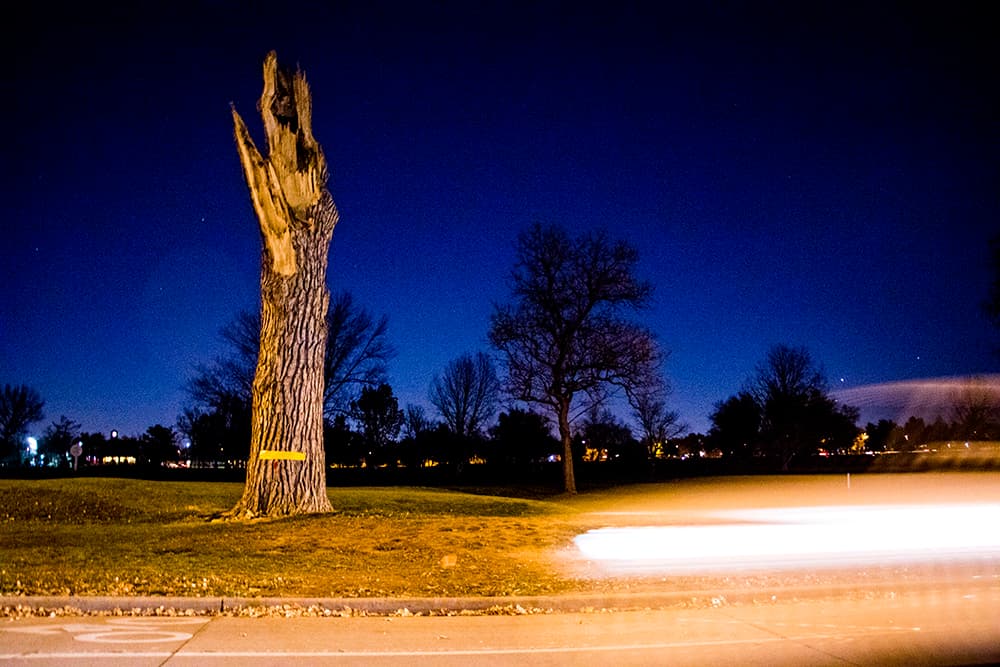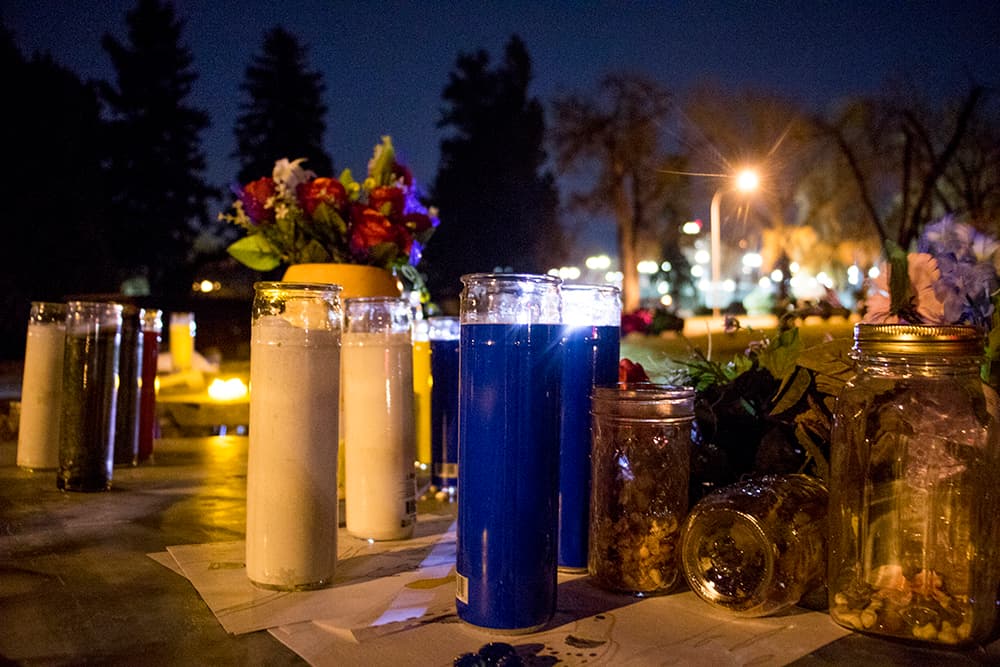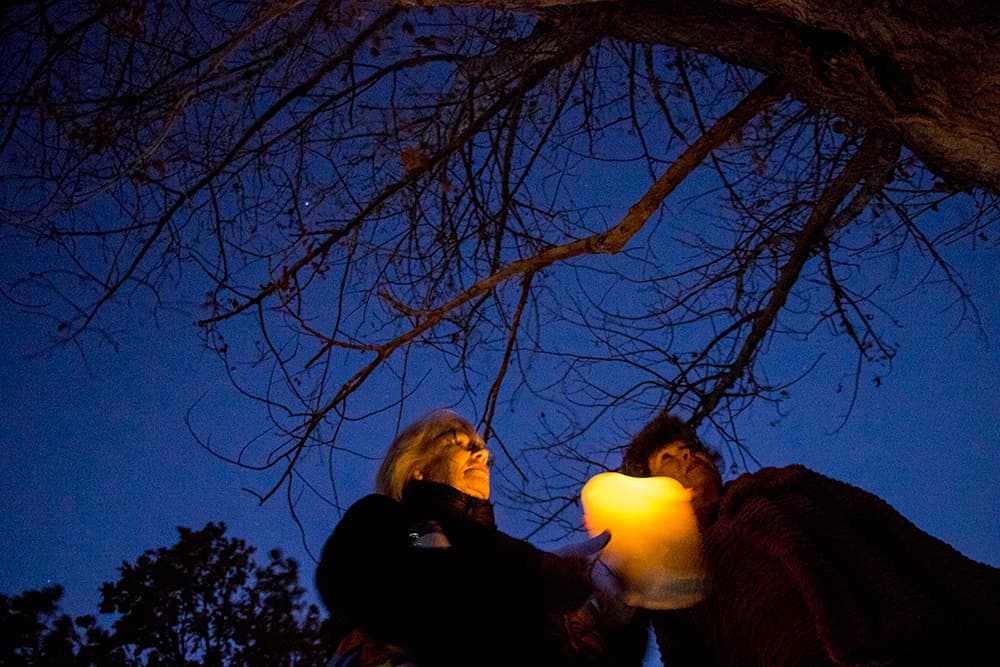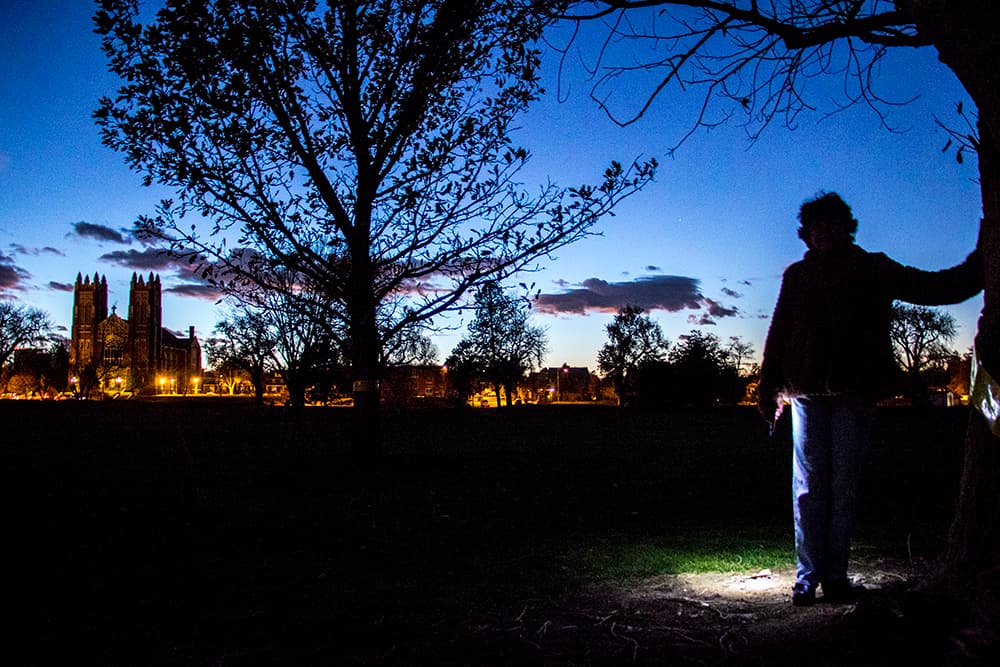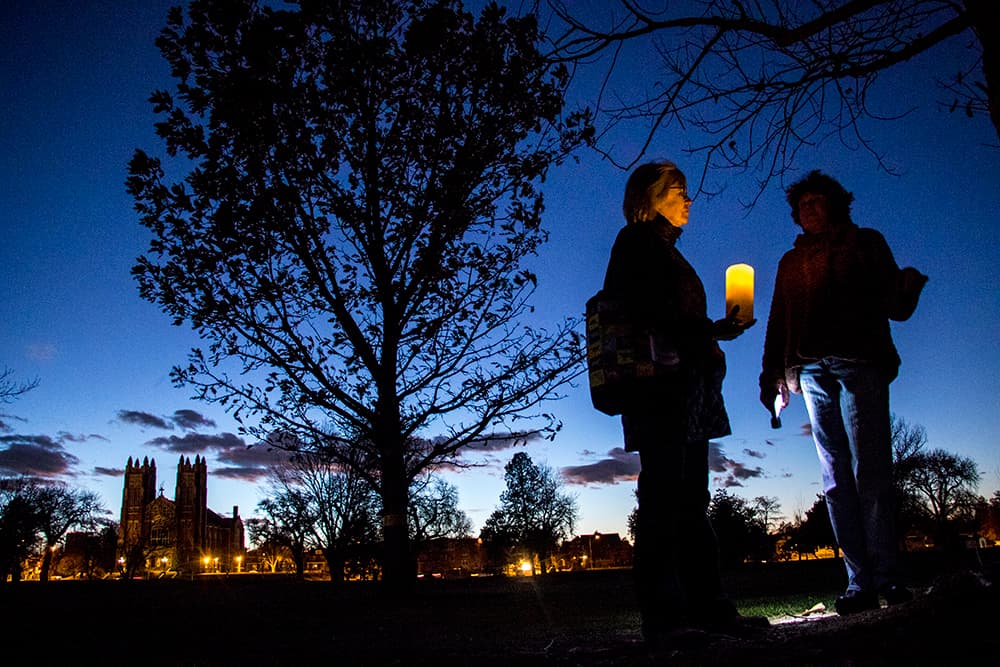
As dusk fell on Sunday evening, a handful of Denverites who oppose the City Park Golf Course redevelopment plan gathered to mourn for the 230 trees that are marked for removal. They lit candles despite blustering winds and carried flowers to the doomed trees, some of which are very large and old. Construction on the course is set to begin on Nov. 1.
The somber protest marks a new dimension for activism around this project. While much of the discourse around the project has centered around the golf course itself and larger environmental justice issues, this new protest introduces concerns about more localized environmental impacts to air and soil quality and wildlife heath.
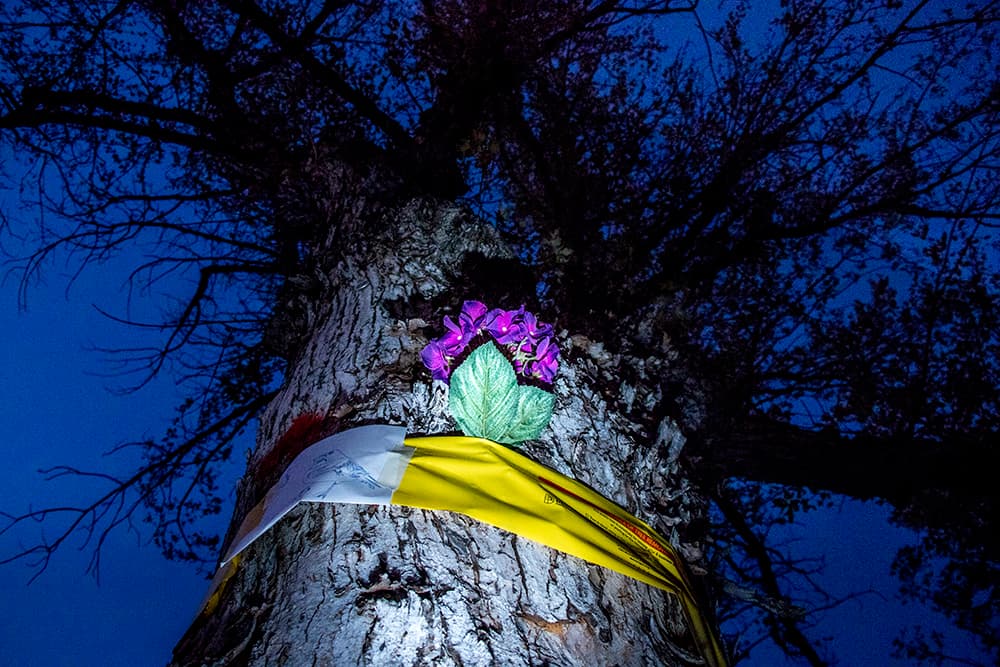
Organizer Kim Shively said in a press release that this was a "final plea" to the city to save the trees. She said the loss of such large foliage could worsen an urban heat island effect and affect local bird populations.
About 260 trees will be removed for the project. The city plans to plant about 600 to 700 new trees on the course, which would replace the lost canopy coverage in about a decade, according to city staff.
Denver District Court Judge David Goldberg agreed in a ruling last week that while the city was taking a “thoughtful approach,” the removal of the mature trees would be “materially detrimental to the habitat and the neighborhood” and could take decades to heal."
A data portal on the website Climate Central ranks Denver as having the third "biggest difference between urban and rural temperatures" due to the urban heat island effect. The tool says Denver is 23 degrees hotter than surrounding areas.
Activists say they plan for funeral-like action at 6pm on Nov. 1. They'll meet at the golf course parking lot at 26th Avenue and York Street.
This story was updated with new information on the number of trees to be removed.
